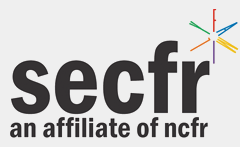Establishing the Effect of Financial Knowledge, Financial Well-being, Self-Esteem, and Locus of Control on Financial Distress among University Students
Proposal Focus
Research
Presentation Type
Poster
Abstract
The most commonly cited reason for dropping-out of a college program is financial issues (Johnson, Rochkind, Ott, & DuPont, 2009). While some financial issues may be related to access to financial resources, others may be related to how college students respond to financial stress. Boss’ (2002) model of family stress (Figure 1) noted the ability to cope with a crisis is influenced by available resources and perception of an event. This framework suggests the amount of financial distress perceived by young adults is influenced by available resources (e.g., parental support or financial knowledge), and internal (psychological) factors, such as self-esteem and locus of control (Boss, 2002). It is hypothesized that perceived financial well-being (perceived outlook of their financial situation), the level of control students have (e.g., locus of control) and how they perceive themselves (e.g., self-esteem) will influence perceived financial distress (ability to manage finances and education), above and beyond, and financial knowledge. To conduct the analysis, a convenience sample of 612 undergraduate college students from a Southeastern University were surveyed to determine whether their financial knowledge (i.e. credit and debit, savings, taxes, and insurance knowledge), perceived financial well-being, self-esteem and locus of control had an effect on financial distress. The results of a multiple linear regression revealed respondents’ well-being (β = .61, p < .01) and locus of control (β = .18, p < .01) are significant indicators of financial distress among college students. Specifically, for every one point increase in financial well-being, financial stress decreases by .69 points (b = -0.69, p < .01) and for every one point increase in locus of control (suggesting an increase in external locus of control), financial stress increases by .21 points (b = 0.21, p < .01). Furthermore, financial knowledge and self-esteem was not significantly related to financial stress among college students (β = -0.04, p = .11, and β = -0.10, p = .02 respectively). As such, college student’s financial distress is lower when students possess a positive outlook on their financial well-being, have an internal locus of control, and have high self-esteem. Financial knowledge had less influence on financial distress, but this finding may be a product of the level of financial knowledge among college students.
Keywords
locus of control, college students, financial stress
Location
Tiger I
Start Date
9-3-2018 11:30 AM
End Date
9-3-2018 12:30 PM
Establishing the Effect of Financial Knowledge, Financial Well-being, Self-Esteem, and Locus of Control on Financial Distress among University Students
Tiger I
The most commonly cited reason for dropping-out of a college program is financial issues (Johnson, Rochkind, Ott, & DuPont, 2009). While some financial issues may be related to access to financial resources, others may be related to how college students respond to financial stress. Boss’ (2002) model of family stress (Figure 1) noted the ability to cope with a crisis is influenced by available resources and perception of an event. This framework suggests the amount of financial distress perceived by young adults is influenced by available resources (e.g., parental support or financial knowledge), and internal (psychological) factors, such as self-esteem and locus of control (Boss, 2002). It is hypothesized that perceived financial well-being (perceived outlook of their financial situation), the level of control students have (e.g., locus of control) and how they perceive themselves (e.g., self-esteem) will influence perceived financial distress (ability to manage finances and education), above and beyond, and financial knowledge. To conduct the analysis, a convenience sample of 612 undergraduate college students from a Southeastern University were surveyed to determine whether their financial knowledge (i.e. credit and debit, savings, taxes, and insurance knowledge), perceived financial well-being, self-esteem and locus of control had an effect on financial distress. The results of a multiple linear regression revealed respondents’ well-being (β = .61, p < .01) and locus of control (β = .18, p < .01) are significant indicators of financial distress among college students. Specifically, for every one point increase in financial well-being, financial stress decreases by .69 points (b = -0.69, p < .01) and for every one point increase in locus of control (suggesting an increase in external locus of control), financial stress increases by .21 points (b = 0.21, p < .01). Furthermore, financial knowledge and self-esteem was not significantly related to financial stress among college students (β = -0.04, p = .11, and β = -0.10, p = .02 respectively). As such, college student’s financial distress is lower when students possess a positive outlook on their financial well-being, have an internal locus of control, and have high self-esteem. Financial knowledge had less influence on financial distress, but this finding may be a product of the level of financial knowledge among college students.
![Southeastern Council on Family Relations Conference [2018-2020]](/assets/md5images/a0d3661d5139dc9b769a57be6f085156.png)

